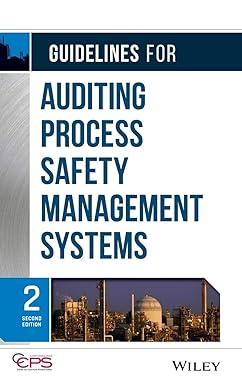Question
Group 7 Harry Davis is raising capital for a major expansion program. What is his WACC? During the last few years, Harry Davis Industries has
Group 7
Harry Davis is raising capital for a major expansion program. What is his WACC?
During the last few years, Harry Davis Industries has been too constrained by the high cost of capital to make many capital investments.
Recently, though, capital costs have been declining, and the company has decided to look seriously at a major expansion program proposed by the marketing department. Assume that you are an assistant to Leigh Jones, the financial vice president. Your first task is to estimate Harry Davis cost of capital. Jones has provided you with the following data, which she believes may be relevant to your task:
The firms tax rate is 35%.
The price of Harry Davis $1000 par value, 8.5% coupon, semiannual payment, noncallable bonds with 15 years remaining to maturity is $1000. New bonds would be privately placed with no flotation cost.
The current price of the firms $100 par value, quarterly dividend, perpetual preferred stock is $116 per share. The next perpetual preferred stock dividend is scheduled to be $8.00 per share. The company expects dividends on this preferred stock to grow at a rate of 4.5% per year. Harry Davis would incur flotation costs if they issue new preferred stock. The flotation costs are given below.
Harry Davis is also considering financing the project using equity. He can choose to equity finance through retained earnings or through issuance of new common stock. If he issues new common stock, he will have to incur flotation costs of 6%. The common stock is currently selling as shown in the table per share. Its last dividend (D0) was 2.5% of price, and dividends are expected to grow at a constant rate of 10.0% in the foreseeable future. Harry Davis beta is 1.1, the yield on 3-mo T-bills is 2.0%, and the market risk premium is estimated to be 10.0%. For the own-bond-yield-plus-risk-premium approach, the firm uses a 4.0% risk premium. Harry Davis target capital structure is 30% long-term debt, 10% preferred stock, and 60% equity.
| Group 1 | Group 2 | Group 3 | Group 4 | Group 5 | Group 6 | Group 7 | Group 8 | Group 9 | Group 10 | Group 11 | |
| Bond Price | $1,160 | $1,165 | $1,163 | $1,176 | $1,119 | $1,105 | $1,156 | $1,167 | $1,178 | $1,172 | $1,107 |
| Preferred Stock Floatation Cost | 5.00% | 5.05% | 5.10% | 5.15% | 5.20% | 5.25% | 5.30% | 5.35% | 5.40% | 5.45% | 5.50% |
| Common Stock Price | $72 | $77 | $81 | $79 | $65 | $69 | $66 | $82 | $81 | $79 | $61 |
To help you structure the task, Leigh Jones has asked you to answer the following questions:
a. What is the interest rate on Harry Davis debt, and what is the cost of this debt for WACC purposes?
b. What is the firms cost of preferred stock?
c. Compute Harry's cost of equity if he chooses to issue new common stock (Cost of New Common Stock, re).
Step by Step Solution
There are 3 Steps involved in it
Step: 1

Get Instant Access to Expert-Tailored Solutions
See step-by-step solutions with expert insights and AI powered tools for academic success
Step: 2

Step: 3

Ace Your Homework with AI
Get the answers you need in no time with our AI-driven, step-by-step assistance
Get Started


